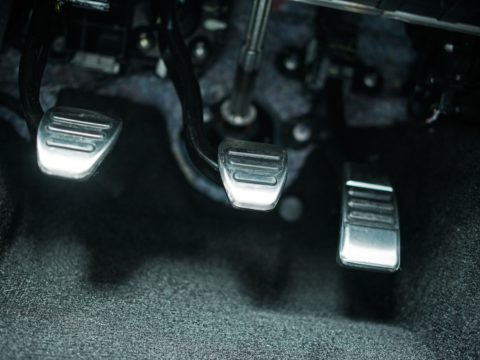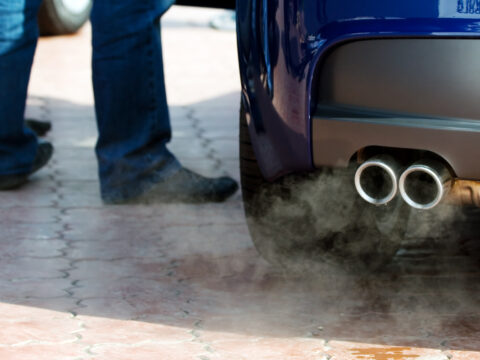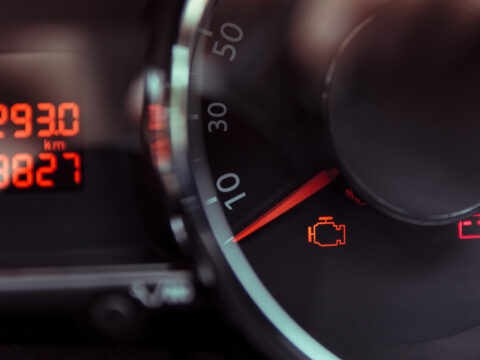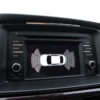Your car could overheat when idling with AC on due to reduced coolant, a clogged air filter, a bad thermostat, a faulty fan, and a bad water pump. Understanding the cause of your car overheating before fixing it is crucial to avoid damage.
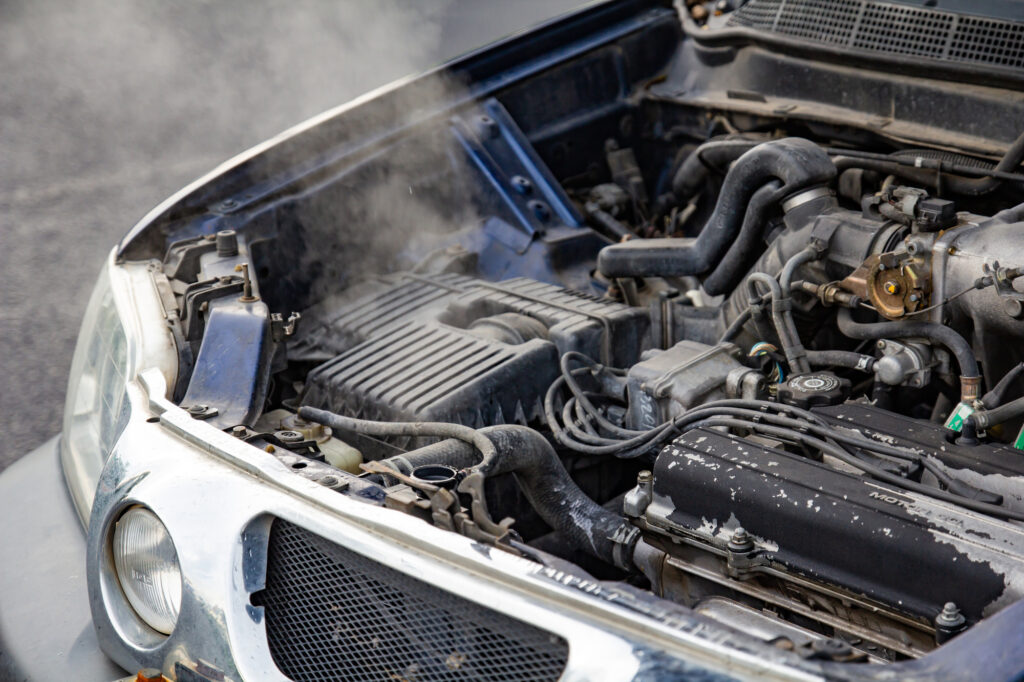
This article details why your car is overheating when idling with AC on. It also discusses overheating signs and gives tips on fixing this problem.
Contents
Signs Your AC Is Causing Overheating
Identifying if your car is overheating is crucial to fixing it in time. Below are tell-tale signs of overheating.
Car Engine Shutting Down
All cars have a safety precaution that prevents them from starting if the engine overheats. This happens whether the AC is on or not. Therefore, your car’s engine refusing to start is the first sign of overheating.
Temperature Gauge
You should check the temperature gauge to confirm if your car is overheating. The gauge measures the engine coolant’s temperature and is supposed to read between 195 and 220 degrees. Your vehicle may be overheating if the reading exceeds this range.
Weird Noises
If you hear weird ticking sounds from the engine compartment, your car may be overheating. The ticking is due to using the engine oil past its due date.
Overusing oil causes friction in the engine, which in turn produces a ticking sound. It also makes the engine overwork and strain, releasing excess heat. A combination of high temperatures and a weird sound indicate overheating.
Wet Car Components
Water dripping from the AC vents might be a sign your car is overheating. These droplets mean that condensation is taking place in the system. There could be a leak or dirt preventing air circulation in the system.
The Relationship Between Car AC and Overheating
The AC compressor is connected to the car’s engine by a belt, which functions like a clutch. The transmission between the AC and engine is magnetic and is managed by several low and high-pressure sensors that keep it cycling.
Every AC cycle adds an equivalent strain on the engine, leading to heat production. As the strain builds up, heat generation increases, causing overheating. This situation can worsen if the AC compressor is overloaded and the belt isn’t working correctly. The strain on the engine is amplified, increasing heat production.
What Causes Overheating When AC Is on?
Your car may overheat when the AC is on due to the following issues.
Reduced Coolant
If your car’s coolant reduces, it won’t be able to cool the engine efficiently. Heat will eventually build up, despite the AC being on.
Below are reasons why your car is low on coolant.
Broken Hoses
Your car’s radiator has two hoses. One carries hot coolant from the engine to the radiator for cooling, while the other carries coolant to cool the car’s engine through the water pump. Aging could cause these hoses to break. To confirm this, inspect the hoses vigilantly for any wetness. You’ll notice some chalkiness on the hoses if they are dry.
Water Pump
Water pumps have gaskets to prevent leaking. If one of these mechanical seals malfunctions, the pump will leak. Pointing out this leakage can be challenging. However, a puddle below the engine area indicates that one of the gaskets has failed.
Radiator Leak
Identifying this leak is challenging as other car accessories obstruct the radiator’s view. The best way to note if the radiator is leaking is by inspecting if any of its fins have a streak running down, indicating that the coolant was dripping out.
Faulty Thermostat
The thermostat controls coolant entry into the engine. A faulty thermostat prevents the coolant from entering the engine, causing overheating.
Faulty Fan
Cars have electric fans, which cool their radiators when the vehicle gets hot. Like all electric gadgets, these fans may fail sometimes. If your car is hot, open the hood to confirm if the fan is turning. If there’s no movement, check if the fan is connected to the fuse correctly.
Faulty Water Pump
A car’s water pump works in sync with the engine’s system. An increase in the engine’s rpm increases the water pump’s speed. A faulty water pump doesn’t allow coolant movement to the radiator and engine, hindering cooling.
Clogged Air Filter
Your car’s AC cleans the air before blowing it out. Therefore, the system is prone to clogging after a while due to dust accumulation. Clogging prevents cool air from flowing freely into your car, increasing temperatures.
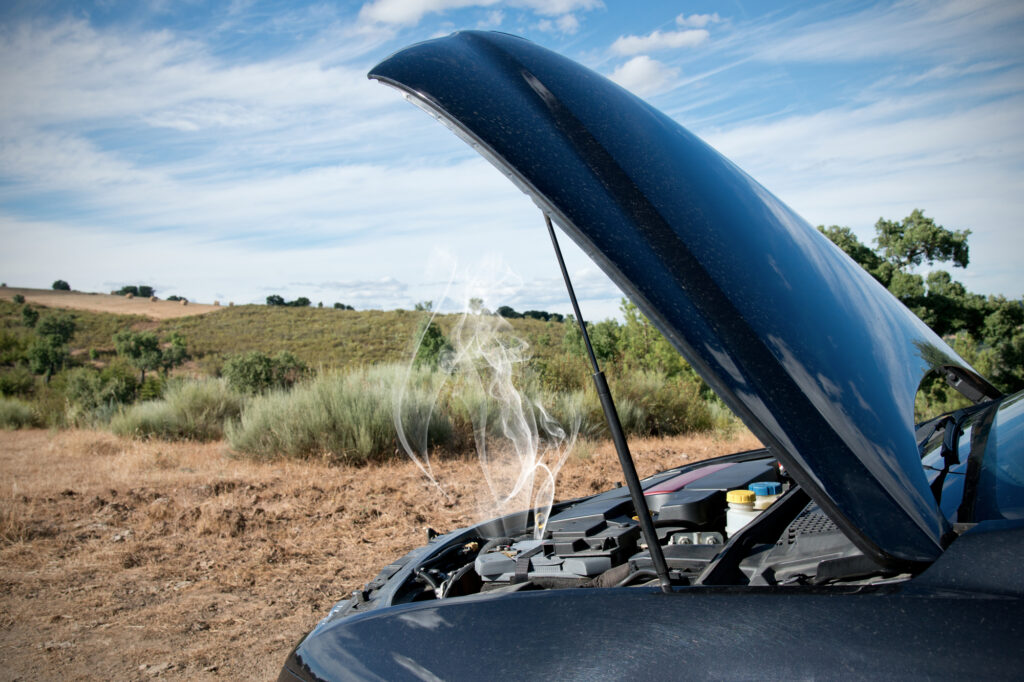
How To Fix a Car That Overheats When AC Is On?
Fixing your car is easier after identifying the cause of overheating. Below are ways to fix this problem.
Fix Coolant Leak
If your car is overheating due to being low on coolant, adding it back won’t fix the problem, as the coolant will continue to leak. You should try and track the leak first. Check below the car to see if there are any coolant puddles. Then, track the leak from the car spot directly above the leak.
After fixing the leak, you can fill the coolant reservoir and radiator back up. It isn’t advisable to do this if the engine is still warm because the cold coolant could trigger the block or cause the freeze plug to fall out.
Replace the Fan
There’s nothing much to do if the electric fan isn’t working despite adjusting its connection to the fuse and ensuring it’s getting power. The only option is to replace the electric fan entirely.
Replace Thermostat
A faulty thermostat doesn’t open all the way to allow adequate coolant flow to the engine. Fix this issue by replacing the thermostat, then see if the heat will reduce.
Change the Water Pump
If the water pump can’t pump coolant to the engine through the radiator, it’s a sign that it’s broken or worn out after prolonged use. You’ll have to switch to a new one.
Changing a water pump can be challenging. Take your car to a mechanic in such instances to avoid causing more damage.
Get an Air Pressure Gauge
An air pressure gauge is essential if your AC’s airflow is curtailed due to dust accumulation. It will help monitor your car’s airflow and thus quickly identify if the AC needs cleaning. This prevents the situation from escalating to overheating.
Frequently Asked Questions
Here are some of the most commonly asked questions regarding a car that overheats when the AC is on.
Can a bad AC compressor cause a car to overheat?
A bad AC compressor can cause a car to overheat because its belt isn’t functioning well. The belt links the compressor to the engine. A faulty one causes the engine to strain, producing excess heat.
Can overcharging AC cause the car to overheat?
Overcharging AC can cause your car to overheat. Overheating could damage the compressor severely, causing the engine to strain and overheat.
Does running AC make the engine hotter?
Running AC will make the engine hotter. Each AC cycle adds pressure to the engine, producing more heat.
Should I turn off the AC if my car is overheating?
You should turn off the AC if your car is overheating, as letting it run will cause the engine to strain and produce more heat instead of cooling the vehicle.

